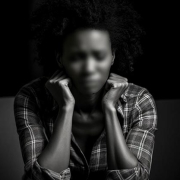Q&A – 26 August 2024
Jealous of other wives
I am a woman married to a Muslim man who had three wives already and I am not happy with the current treatment I have received from my husband and his family. They treat me as less important than the other wives to the point that I feel jealous and depressed. My husband never seeks my opinion on our family matters. My sister-in-law even told me that there is a hierarchy of wives and I should not expect to enjoy equal rights with the other wives. This statement has disturbed my peace. Is it true that there is a hierarchy of wives which creates varied rights among wives? Kindly enlighten me.
RS, Tanga
Section 57 of the Law of Marriage Act, [Cap. 29 R.E. 2019] is clear that for the avoidance of doubt, it is hereby declared that, subject to the express provisions of any written law, where a man has 2 or more wives they shall as such enjoy equal rights, be subject to equal liabilities and have equal status in law. This means according to law, there is no hierarchy of wives in a polygamous marriage unless a law specifically states so. Remember our answer is based on our law. However your religion and customs may have other provisions. If you are unhappy with your marriage, you may seek counselling or consult your religious leader for further guidance. If you have other legal questions on this matter, your lawyer can guide you further.
Testimony of a mute person
My brother, who is mute (cannot speak), witnessed a crime. He has now been called to testify in Court. There is a problem regarding his ability to testify while he cannot speak. Is there an alternative way he can use to provide his testimony? Please guide us.
BN, Kilimanjaro
Matters of evidence are primarily governed by the Evidence Act, [Cap. 6 R.E. 2022] (the Evidence Act). The Evidence Act provides alternative ways a mute witness can provide their evidence. According to section 128(1) of the Evidence Act, a witness who is unable to speak may give his evidence in any other manner in which he can make it intelligible, such as by writing or by signs; but such writing must be written and the signs made, in open Court. Such evidence shall, according to the law, be deemed to be oral evidence. Your lawyer can guide you further.
Duty of a Child
I was listening to a radio programme, when I heard that children have duties and responsibilities to their parents and community. I think the presentation was wrong and misleading. Children cannot have duties and responsibilities. I know a law that says children should be protected. Kindly guide me.
GM, Dar es Salaam
The law you are referring to is the Law of the Child Act [Cap. 13 R.E. 2019] (the Law of the Child). Much as the law contains various provisions protecting children, it also provides general duties for children. According to section 15 of the Law of the Child Act, a child shall have a duty and responsibility to (a) work for the cohesion of the family; (b) respect his parents, guardians, superiors and elders at all times and assist them in case of need; (c) serve his community and nation by placing his physical and intellectual abilities at its service in accordance with his age and abilities; (d) preserve and strengthen social and national cohesion; and (e) preserve and strengthen the positive cultural values of his community and the nation in general in relation to other members of the community or the nation. In that regard, the presenter was correct. Nonetheless, this provision does not, in any way, take away the rights of children protected under the Law of the Child Act.
Assisting your spouse to avoid punishment
My religious leader told me marriage is a sacred covenant such that a spouse is required to assist their partner even when they discover that the other person has committed a crime. I think this may not align with the law but I am not sure. Please guide me.
NK, Mbeya
We do not know the context of this religious teaching, however, we will provide our answer based on our understanding of your question. Since you talk about discovering a crime, we assume you had nothing to do with the crime and you only later discover that your spouse had committed a crime. Generally, section 387(1) of the Penal Code [Cap. 16 R.E. 2022] provides that a person who receives or assists another who is to his knowledge, guilty of an offence, in order to enable him to escape punishment is an accessory after the fact of the offence. Accessories after the fact can be held liable for an offence to the extent of their role in enabling the offender to escape punishment for the offence committed.
However, there is an exception in regards to spouses. According to section 387(2) of the Penal Code, a wife does not become an accessory after the fact to an offence of which her husband is guilty by receiving or assisting him in order to escape punishment. The same applies to a husband assisting his wife. Courts have in various decisions explained that the exception does not apply to active participation in the commission of the crime; concealing evidence and interference with the administration of justice.
Correction
In our column of last week, Monday, 19 August, 2024, we inadvertently published a draft version of our response to the first question titled ‘In love with mother-in-law’ where we said that marrying your mother-in-law is permitted. In fact, it is not permitted and can send you to jail for up to 2 years.
Although having a relationship with your mother-in-law will not amount to incest, you cannot legally marry your mother-in-law as such type of relation is prohibited under the Law of Marriage Act [Cap. 29 R.E. 2019].
Apologies.
FB Attorneys

